Directory
- Share
Clara Gyhrs
- Scholar-elect
- Denmark
- 2025 PhD Zoology

Clara Gyhrs
- Scholar-elect
- Denmark
- 2025 PhD Zoology
Growing up, I spent every possible moment in or near the ocean—snorkelling, rock-pooling, and watching wildlife for hours on end. I was captivated by the complexity of marine life and originally dreamed of becoming a marine biologist. This early passion for the sea eventually led me to pursue an integrated master’s degree at the University of Glasgow, where I first encountered transmissible cancers. I was immediately drawn to the mystery of these remarkable diseases in bivalves—cancers that defy conventional understanding by spreading not only between individuals but also across species and entire oceans. This phenomenon presents a rare biological system that challenges the boundaries of what we consider an individual organism. To truly understand it requires an interdisciplinary approach spanning anatomy, ecology, and immunology. My own fascination lies in the genomics: how these cancers have evolved from host tissue into parasitic lineages, capable of independent, parallel evolution. It is here—at the intersection of my childhood wonder and scientific inquiry—that I aim to contribute to understanding the nature and evolution of life itself.
Previous Education
University of Glasgow Genetics with Data Science
Joshua Heihre
- Scholar-elect
- Malaysia, United States
- 2025 PhD Clinical Neurosciences
- King's College

Joshua Heihre
- Scholar-elect
- Malaysia, United States
- 2025 PhD Clinical Neurosciences
- King's College
I was born and raised in Kuala Lumpur, Malaysia, before an interest in bioscience and the human condition took me to London for medical school. There, my longstanding curiosity about the inner workings of the human body, combined with exposure to patients with acute brain injury – whether on the wards, in clinics, or in the operating theatre – deepened my interest in the pathophysiology and management of these complex conditions. My research centres on understanding and targeting the molecular and cellular mechanisms driving brain injury, with a particular focus on mitochondrial dysfunction and neuroinflammation following traumatic brain injury (TBI). During my PhD in Clinical Neurosciences, my work will involve development of in vitro cellular models of TBI to investigate these secondary injury processes, identify biomarkers, and aid in the clinical translation of novel neuroprotective agents. It is an honour to join the cohort of Gates Scholars, and I look forward to growing within this mission-driven community as I work toward bridging the gap between innovative research and compassionate patient care.
Previous Education
University of Cambridge Medical Science
Ofir Hendel
- Scholar-elect
- Israel, United States
- 2025 MPhil Economic Research
- Churchill College

Ofir Hendel
- Scholar-elect
- Israel, United States
- 2025 MPhil Economic Research
- Churchill College
Witnessing the beauty—and fragility—of coral reefs during dives impressed upon me the urgency of climate action. So I pursued a degree in Sustainability and Economics at Reichman University, joining the Economics Honors Program and the Aviram Climate Program. I became the first student in my faculty to publish peer-reviewed research before graduation, co-authoring a paper in a Nature Portfolio journal on using Digital Twins for ocean conservation. In parallel, I gained practical experience at a climatetech startup and a venture capital fund, which led me to recognize that technological solutions alone are insufficient without addressing institutional barriers to action. After graduation, I consulted for financial institutions on managing climate-related risks, deepening my understanding of the economic impacts of climate change. Currently, I am a researcher at two institutes in Israel, focusing on energy security and natural resources. Through my upcoming MPhil in Economic Research, I aim to explore the macroeconomic effects of climate change. Leveraging my experiences in academia, the private sector, and policy research, I aspire to produce actionable and accessible research. I am incredibly honoured to join the Gates community.
Previous Education
Reichman University Sustainability and Economics
Catalina Hierro Hernandez-Mora
- Scholar-elect
- Spain
- 2025 PhD Law

Catalina Hierro Hernandez-Mora
- Scholar-elect
- Spain
- 2025 PhD Law
Losing my mother shortly before starting law school deepened my empathy for the suffering of others. Paired with a strong sense of justice, it led me to discover my calling in defending human rights. After qualifying as a lawyer in Spain, I pursued an LLM in Public International Law and International Human Rights Law at the London School of Economics, where I began to study the most heinous of international crimes: genocide. I couldn’t stop asking myself: how could states fail to do more to prevent such a devastating crime, one that wounds not only the targeted group but humanity as a whole?Through my PhD research at Cambridge, I aim to enhance state compliance with the duty to prevent genocide by developing a set of criteria for allocating individual state obligations under this collective duty. I also seek to critically assess the Genocide Convention and the role of the UN Security Council, with the goal of helping realise their unfulfilled potential as instruments of genocide prevention and as pillars of the international rule of law.I am deeply honoured to pursue this journey as a member of the Gates Cambridge community, among individuals who, like me, are committed to leaving the world better than they found it.
Previous Education
Universidad Carlos III de Madrid Law
London School of Economics & Political Science (Un Law (Public International Law)
University of Queensland Business Administration
Erica Hogan
- Scholar-elect
- United States, Japan
- 2025 MPhil Development Studies
- Murray Edwards College (New Hall)
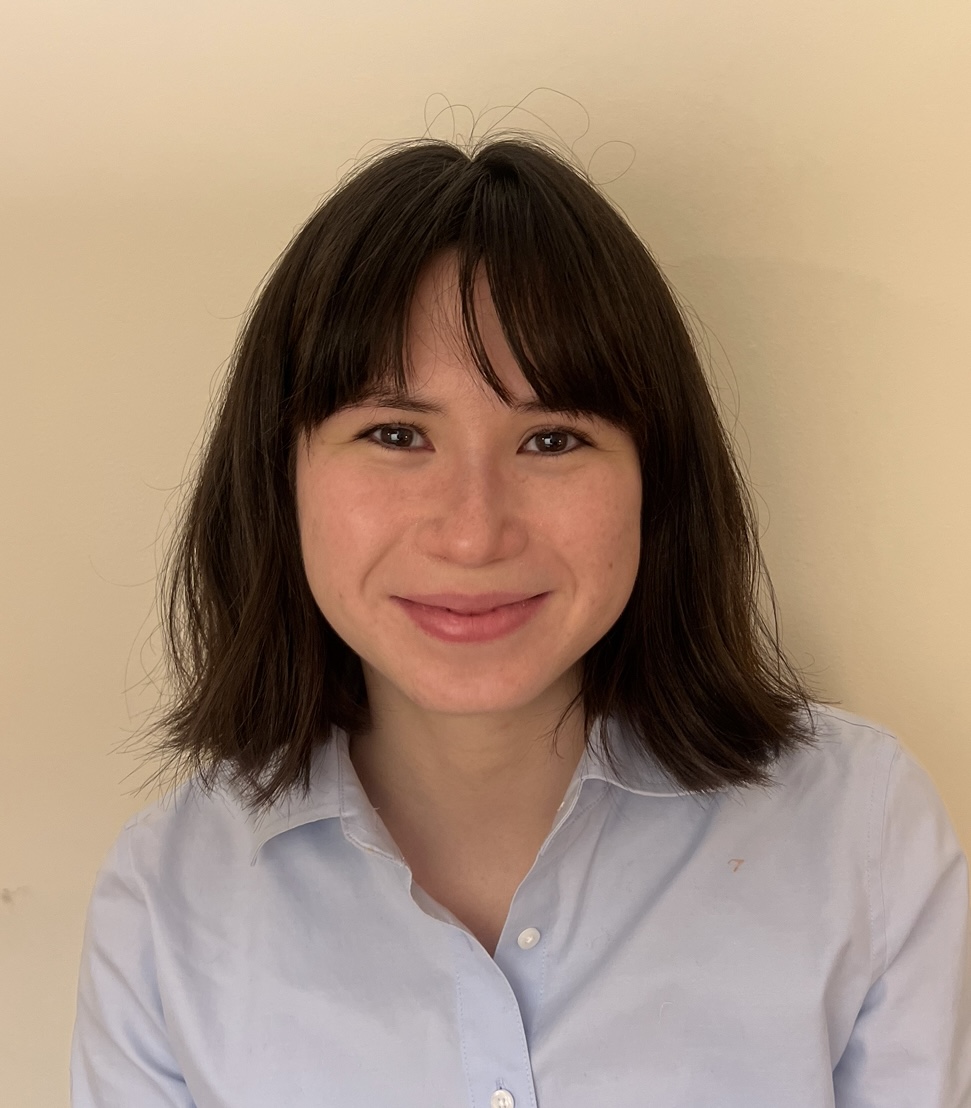
Erica Hogan
- Scholar-elect
- United States, Japan
- 2025 MPhil Development Studies
- Murray Edwards College (New Hall)
I hope to use research to help create an international financial system that meets the needs of the world’s most vulnerable. I studied Economics and Political Philosophy as an undergraduate, focusing on the post-colonial economic development of African states. While researching corruption in the Kinshasa traffic police, studying abroad in Senegal, and working at a school in Zambia, I came to see how policy made in New York, Washington D.C., and London shaped the financial realities of people far away, often with tragic consequences. Now, as a policy researcher at the Carnegie Endowment for International Peace, I study structural inequalities in the international financial system. I use my research to develop and advocate for policies that restructure international finance to support rather than suppress the development aspirations of post-colonial states.
Previous Education
University of Chicago Economics/Political Theory
Kalena Holeman
- Scholar-elect
- United States
- 2025 MPhil Classics
- Trinity College
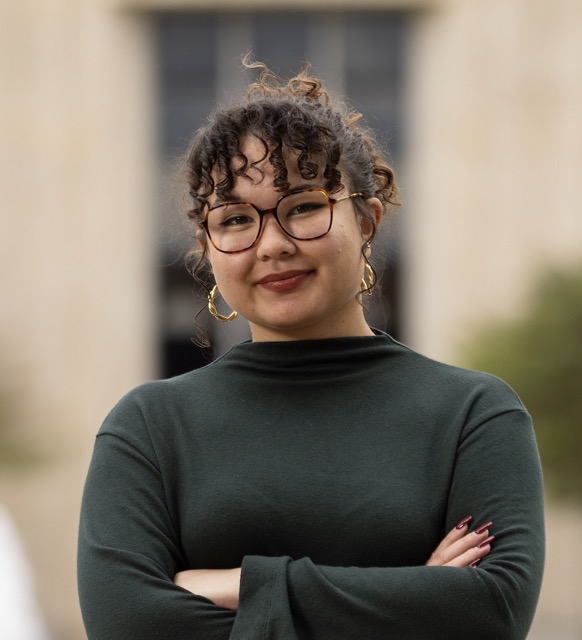
Kalena Holeman
- Scholar-elect
- United States
- 2025 MPhil Classics
- Trinity College
Born and raised in Houston, Texas, I am a mixed-race scholar who has always been interested in narratives of identity. I attended the University of Houston where I completed a BA in English Literature with minors in Classics and Creative Work. In various research projects at the University of Houston and Harvard, I have explored why and how Black artists engage with antiquity to reimagine new art forms and critique the historical whiteness of these spaces from the inside. At Cambridge, I am pursuing an MPhil in Classics to study at the intersection of Black feminist theory and classical reception to better understand antiquity’s influence on modern conceptions of race, literature, and culture. I will explore how contemporary Black women writers across the African diaspora engage with Homer’s Odyssey to grapple with complex paradoxes of home and movement throughout histories of oppression. Moreover, I integrate the study of Homer's texts themselves to demonstrate how a Black feminist framework can reveal new interpretations of the Odyssey. I am incredibly honored to join the Gates Cambridge community and excited to learn from and collaborate with scholars invested in building a better future.
Previous Education
Harvard University Classics
University of Houston English Literature
Isabelle Hoover
- Scholar-elect
- United States
- 2025 PhD History of Art
- Jesus College
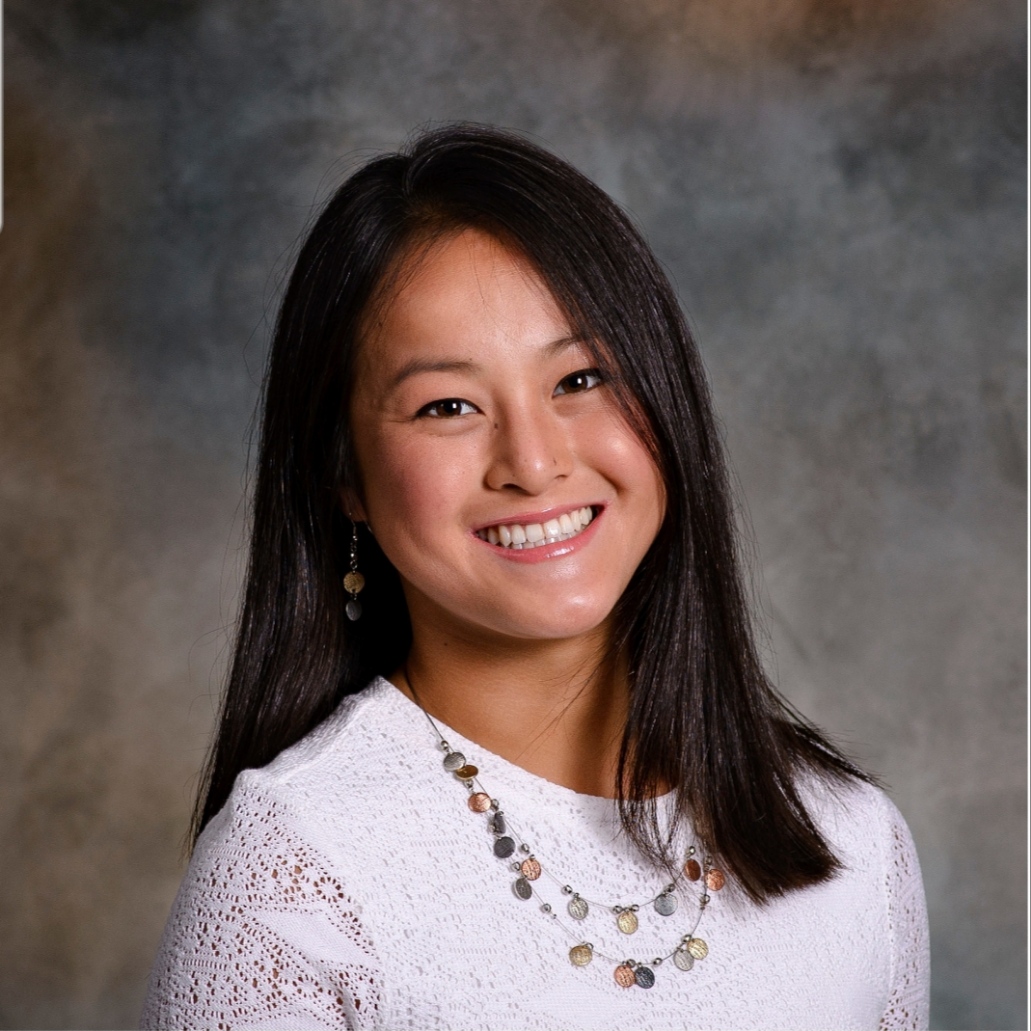
Isabelle Hoover
- Scholar-elect
- United States
- 2025 PhD History of Art
- Jesus College
I grew up in central Ohio and completed my undergraduate studies in Art History and Classical Languages at the College of Wooster. While there, I was exposed to the study of art and its historical and cultural importance. Entering Cambridge’s MPhil Program in Art History upon my graduation ingrained in me a love for research and writing, and I am honored to be studying once again at Cambridge. During my PhD, I will examine the presence of painted fictive stone in Italian Renaissance altarpieces and the notion of pseudo-materiality, engaging with ancient and medieval ideas concerning natural and holy matter, reality, and the divine. Through this research, I hope to glean greater insight into our own contemporary relationships with reality, meaning, and systems of belief in the face of rapidly evolving methods of communication and the development of artificial intelligence.
Previous Education
The College of Wooster Classics/ Art History
University of Cambridge History of Art
Yu Huang
- Scholar-elect
- China
- 2025 PhD Earth Sciences
- King's College

Yu Huang
- Scholar-elect
- China
- 2025 PhD Earth Sciences
- King's College
My research explores paleoclimate dynamics relevant to past and future human-environment interactions. During my undergraduate studies in Cambridge Geography, I reconstructed rapid changes in deep-sea current speed during the last deglaciation using marine sediment cores. Subsequently, I was awarded the EFG scholarship to pursue an MPhil in Quantitative Climate and Environmental Science, where I worked on Asian monsoon dynamics during the last interglacial period using cave speleothem records and isotope-enabled Earth System Models. My PhD research uses Antarctic and Greenland ice cores to constrain the interglacial evolution of methane, exploring the role of ancient agriculture in changing global environments. I also conduct independent research in the history and philosophy of science, in particular 20th century physics. Besides my academic work, I paint watercolor and ink landscapes of the places I visit during fieldwork. I seek to widen our imagination of the ways of collectively inhabiting the Earth. I am intrigued by different possible worlds recorded in the geological archives of the Quaternary. My research explores paleoclimate dynamics relevant to past and future human-environment interactions. During my undergraduate studies in Cambridge Geography, I reconstructed rapid changes in deep-sea current speed during the last deglaciation using marine sediment cores. Subsequently, I was awarded the EFG scholarship to pursue an MPhil in Quantitative Climate and Environmental Science, where I worked on Asian monsoon dynamics during the last interglacial period using cave speleothem records and isotope-enabled Earth System Models. My PhD research uses Antarctic and Greenland ice cores to constrain the interglacial evolution of methane, exploring the role of ancient agriculture in changing global environments. I also conduct independent research in the history and philosophy of science, in particular 20th century physics. Besides my academic work, I paint watercolor and ink landscapes of the places I visit during fieldwork. I seek to widen our imagination of the ways of collectively inhabiting the Earth.
Previous Education
University of Cambridge Geography
University of Cambridge Quant. Clim. and Env. Sci.
Rameen Iftikhar
- Scholar-elect
- Pakistan
- 2025 PhD Education
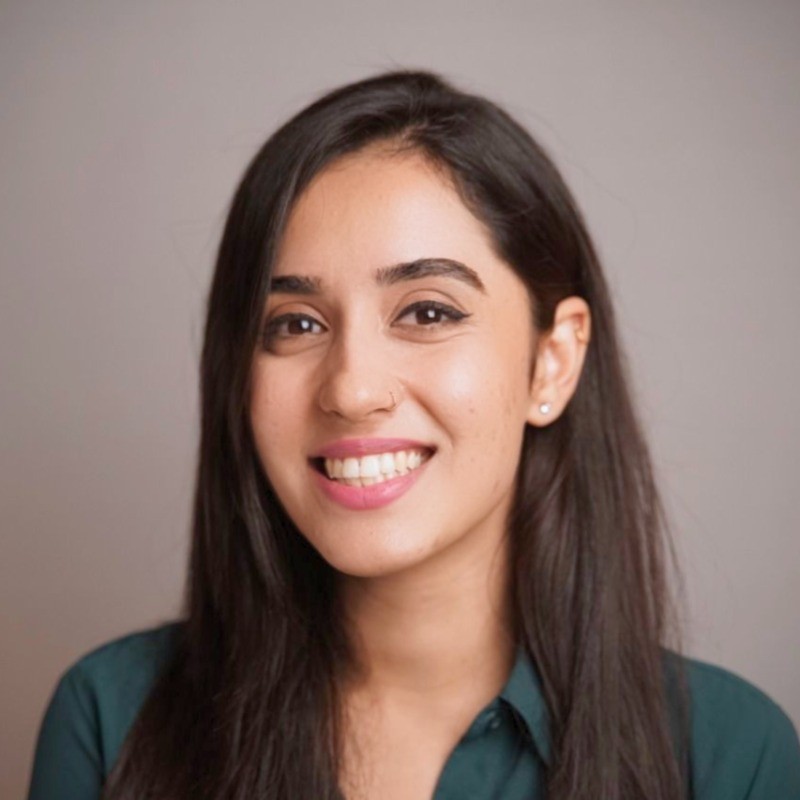
Rameen Iftikhar
- Scholar-elect
- Pakistan
- 2025 PhD Education
Rameen Iftikhar is an education and gender specialist. She has led research and implementation efforts for gender justice through outreach and pedagogy in the Global South. She has pioneered a multimodal approach to gender diversity, violence, and governance in South Asia as the lead investigator of an AHRC-funded grant. She has served as a policy consultant for The Asia Foundation, where she developed a systems reform framework for foundational literacy and numeracy for governments in Southeast Asia. She co-founded Aghaaz, a community-based organisation for at-risk youth in Pakistan, where she designed and implemented programs for vulnerable K-12 students. Drawing from her background in economics, politics, and international development, her doctoral research explores the potential of communities to expand girls’ education and life paths. Her work investigates if the knowledge, skills and resources that young girls gain from education translate into capabilities that allow them to dream of and pursue alternative life paths and envisions communities as key levers of change in these relationships. She graduated as a Fulbright scholar from the University of Pennsylvania with an MSEd in International Education Development program.
Previous Education
Lahore University of Management Sciences Politics & Economics
University of Pennsylvania Int. Educational Development
Aline Jabbari
- Scholar-elect
- Netherlands
- 2025 PhD Social Anthropology

Aline Jabbari
- Scholar-elect
- Netherlands
- 2025 PhD Social Anthropology
Through my Ph.D. in Social Anthropology, I aim to make critical contributions to the fields of memory, trauma, and Kurdish studies and to advance academic place-making for underrepresented narratives and communities. As an aspiring anthropologist, I envision a path of engaged, interdisciplinary scholarship that can provide theoretical contributions to incumbent community dialogue and political reform and set potential frameworks for transformative justice in the aftermath of violence and genocide.
Previous Education
Utrecht University Law
Vrije University Amsterdam Peace, Trauma and Religion
Tristan Jafari
- Scholar-elect
- United States, Germany
- 2025 MPhil Population Health Sciences
- Hughes Hall
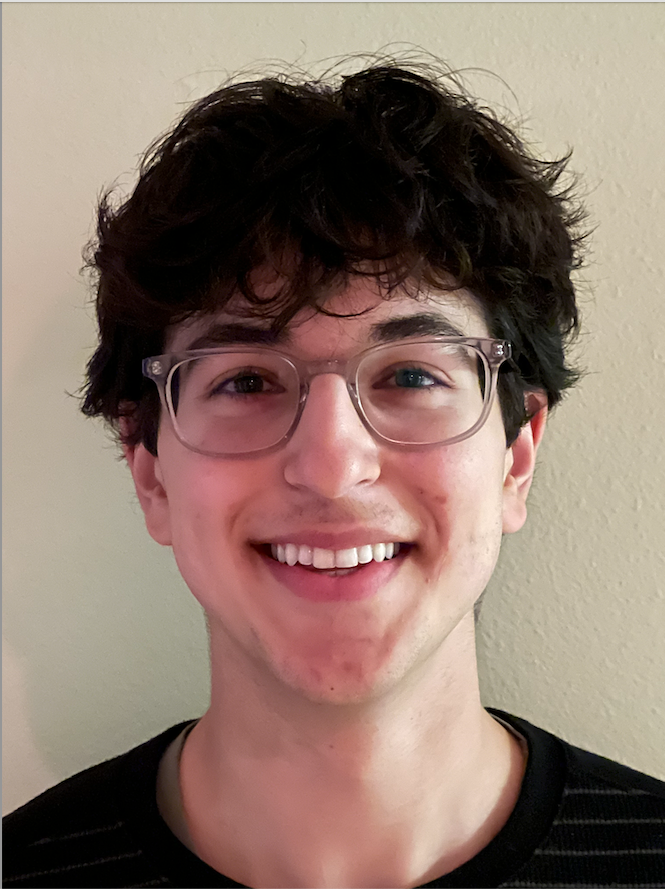
Tristan Jafari
- Scholar-elect
- United States, Germany
- 2025 MPhil Population Health Sciences
- Hughes Hall
I am a biochemistry student at the University of Washington and am sincerely honored to be selected as a Gates Cambridge Scholar. Raised in a German-Iranian household near Seattle, I developed a deep appreciation for cultural identity, global perspectives, and bridging differences to solve complex problems.I work as a researcher to understand mechanisms underlying cardiometabolic disease, as an EMT providing care to underserved communities, and as a public health advocate focused on harm reduction and increasing access to lifesaving resources.At Cambridge, I will pursue a Master in Philosophy in Population Health Sciences. I aim to further my expertise in epidemiology and public health strategy, equipping myself with the tools to address the most pressing health challenges of our time, including addiction, chronic illness, and emergency response.Afterward, I hope to earn a Doctor of Medicine (MD), bridging clinical expertise with population-level interventions to drive systemic improvements in healthcare accessibility and outcomes.I’m grateful for this opportunity, incredibly excited to learn at Cambridge, and committed to using this gift of education to improve lives.
Previous Education
Everett Community College College In The High School
North Seattle College Emergency Medical Technician
University of Washington Biochemistry
Panpailin Jantarasombat
- Scholar-elect
- Thailand
- 2025 PhD Law

Panpailin Jantarasombat
- Scholar-elect
- Thailand
- 2025 PhD Law
Growing up between vastly different worlds of Thailand, the Netherlands, Nigeria, Pakistan, and the United Kingdom, I developed a deep appreciation for how global norms connect and impact the lives of people. These formative experiences led me to pursue law and called me to a career in public service. From scholarship in the dreaming spires of Oxford, to advocacy in the halls of The Hague and negotiations in the United Nations, I gained insight into how international law and diplomacy can make and shape a resilient world order. At Cambridge, my PhD research seeks to explore how international legal principles can safeguard future generations for the common benefit of humankind. In doing so, I hope to promote sustainability in global decision-making processes and develop international law that is effective, equitable, and engaged with humanity’s long-term needs. I am excited to learn from and contribute to a community of scholars committed to this shared pursuit.
Previous Education
Queen Mary, University of London Law
University of Oxford Law
Amaury Jean
- Scholar-elect
- France, Germany
- 2025 PhD Applied Mathematics and Theoretical Physics

Amaury Jean
- Scholar-elect
- France, Germany
- 2025 PhD Applied Mathematics and Theoretical Physics
I am delighted to be starting a PhD in Theoretical Physics at DAMTP, and honoured to do so as a Gates Scholar. My studies in Mathematics and Physics - in Paris, Toronto, and Oxford - have fascinated me by the way Physics brings intuition and meaning to Maths, while Maths provides rigour and precision as a strong backbone. Theoretical Physics, combining both, helps us to understand nature, predict experiments and even develop new technologies. At Cambridge, I am thrilled to dive into topological condensed matter theory, where certain quantum systems exhibit exotic and robust properties due to their topology. Understanding these new phases of matter is not only an intellectual challenge but also plays a key role in quantum information and quantum computing. Theoretical physics has an exciting chance to get close to technological research and practical applications through topology in condensed matter. I’m delighted to be involved in that!
Previous Education
Ecole Polytechnique Mathematics and Physics
University of Oxford Theoretical Physics
Ecole Normale Supérieure Theoretical Physics
Yashita Kandhari
- Scholar-elect
- India
- 2025 MPhil Ethics of AI, Data and Algorithms

Yashita Kandhari
- Scholar-elect
- India
- 2025 MPhil Ethics of AI, Data and Algorithms
My interest in sociotechnical research first emerged as an undergraduate sociology major at Davidson College. This led me to my role at Point of View, a Mumbai based nonprofit, where I worked to build knowledge on the digital experiences of women and gender diverse people in India, and advocate for digital rights and freedoms. Through my work and research, I have a firsthand understanding of how technological infrastructures exacerbate unequal power hierarchies, and I am committed to creating change. To that end, I am pursuing an MPhil in Ethics of AI, Data, and Algorithms at Cambridge. I will explore how AI can be used to benefit the Global Majority, and what alternative, feminist imaginaries of AI systems can look like. I am deeply honoured and grateful to be a part of the Gates Cambridge community, and look forward to building a better world together.
Previous Education
Davidson College Sociology
Daphne Karusoke
- Scholar-elect
- Uganda
- 2025 PhD Engineering
- Darwin College
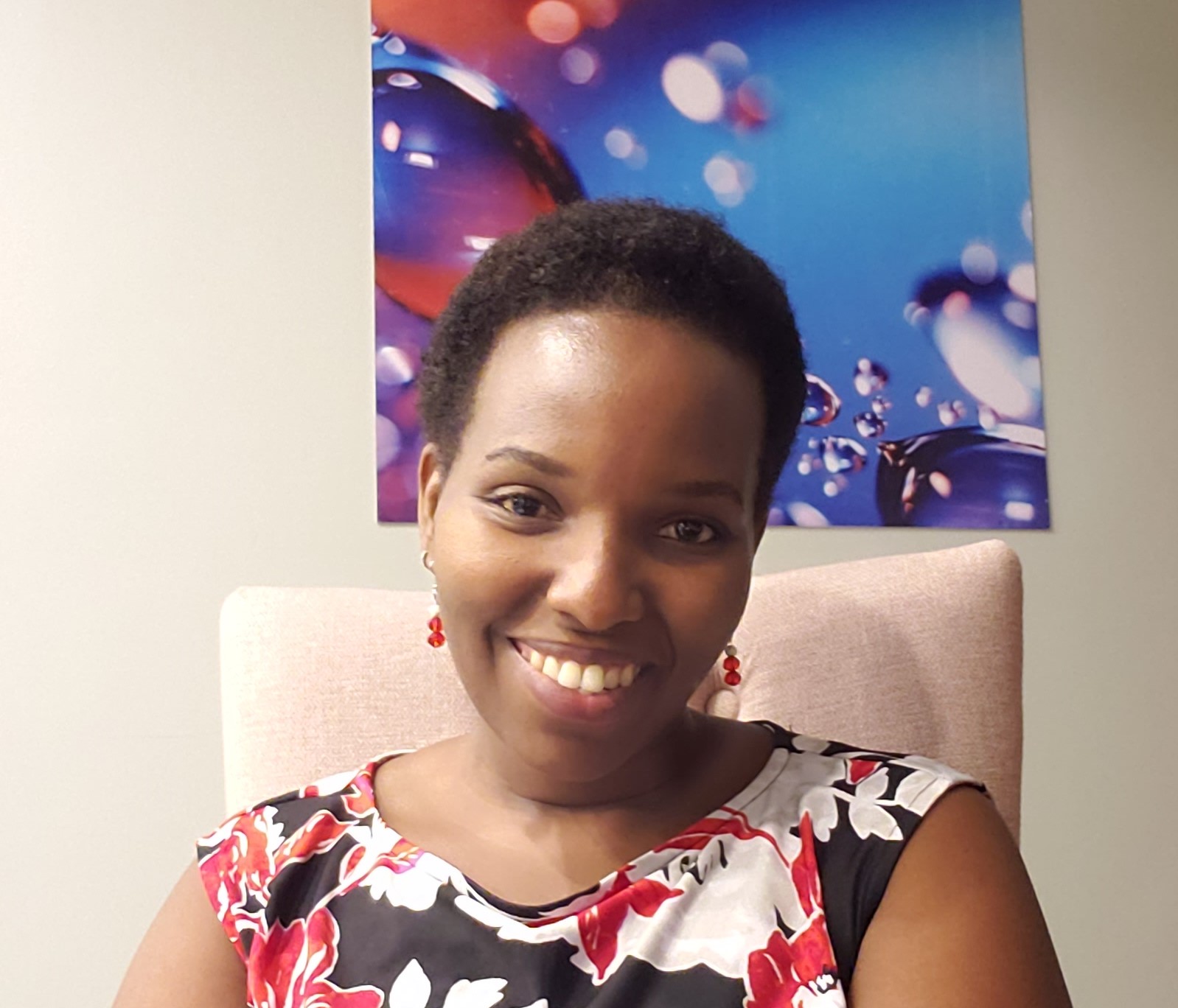
Daphne Karusoke
- Scholar-elect
- Uganda
- 2025 PhD Engineering
- Darwin College
I was born and raised in Uganda, East Africa. I have a bachelor’s degree in medicine (MBChB) from Makerere university and a master's degree in anaesthesia and critical care. This positions me at the forefront of acute care in hospital emergency departments, operating theatres and the intensive care unit (ICU). Traumatic brain injury is a growing global health problem with a disproportionately higher burden in LMICs like Uganda, majorly affecting young males, resulting in death or disability and leaving the survivors and their families adversely affected. Our setting with limited access to surgery, intensive care, rehabilitative services and a significant health workforce deficiency, efforts to prevent brain trauma must be made. My PhD work is focussed on the economic cost and systems impact of traumatic brain injury in the East African region. This will inform policy, resource allocation and hopefully strengthen efforts to prevent or reduce severity of traumatic brain injuries. Outside my PhD work, I look forward to enjoying the rich history, architecture and cultural diversity in Cambridge and establishing new friendships while there.
Previous Education
Makerere University Medicine
Makerere University Anaesthesia
Christina Kim
- Scholar-elect
- United States
- 2025 MPhil Biological Science at the Wellcome Trust Sanger Institute

Christina Kim
- Scholar-elect
- United States
- 2025 MPhil Biological Science at the Wellcome Trust Sanger Institute
I grew up in Princeton, New Jersey, and studied Chemistry and Biology at MIT. My love for science and personal aspirations for motherhood inspired my dedication to advancing women’s health research by bridging critical knowledge gaps in the field. As an undergraduate, I engineered synthetic extracellular scaffolds to develop lab-grown models of the uterus, allowing us to uncover key insights into menstrual disorders such as endometriosis. I have since extended this work at the Wellcome Sanger Institute near Cambridge, integrating my tissue engineering expertise with cutting-edge genomics tools to generate novel models of human placental development. I am eager to continue this work during my MPhil and beyond, which I hope will revolutionise how we study enigmatic processes in reproductive biology and ultimately contribute to life-saving interventions for pregnant women worldwide. I am incredibly grateful for the support of Gates Cambridge and honoured to be part of a community of like-minded scholars committed to making a difference.
Previous Education
Massachusetts Institute of Technology Chemistry and Biology
Faith Kiyuka
- Scholar-elect
- Kenya
- 2025 MPhil Technology Policy
- Queens' College

Faith Kiyuka
- Scholar-elect
- Kenya
- 2025 MPhil Technology Policy
- Queens' College
As an Information Technology graduate (First Class Honours) from Jomo Kenyatta University of Agriculture and Technology, I have become deeply invested in how technology can address Africa’s most pressing challenges. Through my work in global health program management, I’ve seen firsthand how innovation can transform lives—yet also how the growing digital divide risks leaving communities behind. At Cambridge, I aim to bridge this gap by advancing equitable, technology-driven solutions for healthcare and development. My goal is to ensure Africa isn’t merely a consumer of innovation but a shaper of it—whether through scalable health systems, policy advocacy, or grassroots partnerships. Beyond my research, I hope to foster collaboration among technologists, policymakers, and communities to turn potential into tangible progress. I’m inspired to join the Gates Cambridge community, where scholarship meets action, and where values align with my beliefs.
Previous Education
Jomo Kenyatta University College of Agriculture & Information Technology
Sarah Knaus
- Scholar-elect
- Austria, United States
- 2025 PhD Multi-disciplinary Gender Studies

Sarah Knaus
- Scholar-elect
- Austria, United States
- 2025 PhD Multi-disciplinary Gender Studies
I work as a pediatric endocrinology fellow at the Medical University of Vienna, where I specialize in providing care for children with differences in sex development and gender-diverse youth. Over the years, I came to appreciate how intricately my field is intertwined with larger sociopolitical and philosophical questions about normativity and bodily autonomy. I also became increasingly aware of the considerable responsibility we have in caring for marginalized young people. This led me to pursue an MPhil in Multi-Disciplinary Gender Studies at Cambridge, where I learned to apply critical theory to my own practice. My research has since focused on the interplay between gender diversity and health behaviors, and the limitations of medical scientific methodologies in understanding the nuance and agency of gendered embodiment. Expanding on this work, my PhD project aims to apply a more desire-based framework to transgender medical research, troubling the hierarchy between physician-researcher and subject-participant. I'm excited to join the Gates Cambridge scholarship community, whose commitment to improving the lives of others sits at the heart of what I do.
Previous Education
Medical University of Vienna Medicine
University of Cambridge Gender Studies








